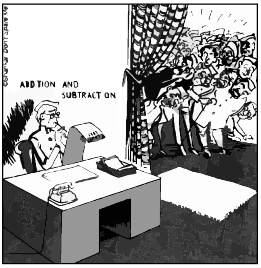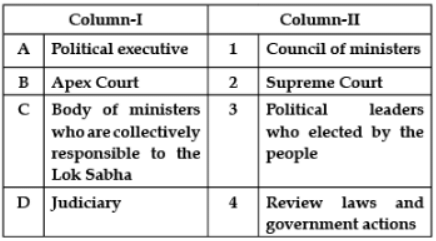Test: Working of Institutions (Term II)- 2 - Class 9 MCQ
9 Questions MCQ Test - Test: Working of Institutions (Term II)- 2
Assertion (A) : At different levels of any government we find functionaries. All those functionaries are collectively known as the executive.
Reason (R) : They are called executives because they are in charge of the ‘execution’ of the policies of the government.
Study the given Picture carefully:

This picture is related to which of the following:

State whether True or False:
The political executive includes the Prime Minister and the Council of Ministers.
State whether True or False:
The Parliament consists only of Lok Sabha.
State whether True or False:
The executive is a group of persons with the authority to initiate major policies.
A body of senior ministers who control important ministers is called a ______________.
Match the following Column I with Column II:

______ takes all major decisions based on the advice of the council of ministers.
The ________ presides over the meetings of the Lok Sabha.














